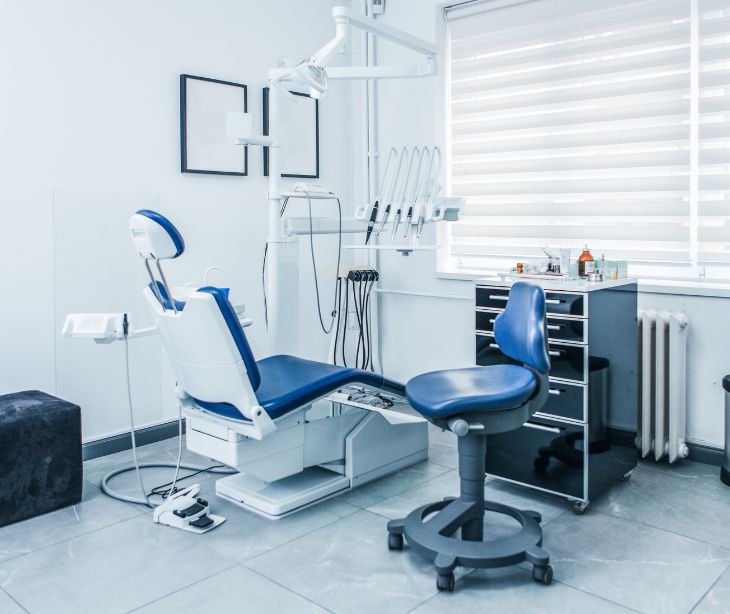3 min read
What physical safeguards can dental offices implement for HIPAA compliance?
Liyanda Tembani
June 15, 2023

Among the various requirements outlined by HIPAA, implementing physical safeguards is a key measure to ensure patient confidentiality and avoid potential breaches. Dental offices must implement a few physical safeguards to maintain HIPAA compliance and safeguard patient information effectively.
HIPAA physical safeguards
The Security Rule sets standards and guidelines for safeguarding patient data in all forms, including electronic, paper, and oral formats. As covered entities, dental offices must comply with the physical safeguards specified in the security rule. HIPAA's physical safeguards are intended to prevent unauthorized physical access to sensitive information, reduce the risk of theft or unauthorized use, and ensure the safety and security of patients' electronic and physical records.
Facility access controls
Implementing facility access controls helps restrict entry to only authorized personnel through:
- Locked doors: Install sturdy locks on all entrances to the facility, including doors leading to areas where patient information is stored. Limit access to authorized staff by providing unique keys or access cards.
- Security systems: Consider implementing security systems such as alarms, surveillance cameras, and motion sensors. These systems can monitor and record activities within the facility, acting as a deterrent to unauthorized access.
- Key cards and biometric controls: Use keycards or biometric access controls, such as fingerprint or iris scanners, to ensure that only authorized individuals can enter restricted areas where patient records are stored.
Workstation security
Dental offices should implement the following practices:
- Physical locking: Ensure that workstations and devices are locked or placed in secure areas when not used. This prevents unauthorized individuals from gaining access to PHI.
- Access control measures: Implement password-protected screen savers and automatic logoff features to ensure that workstations are secure when unattended. This prevents unauthorized access if an authorized staff member steps away from their workstation.
- Encryption: Employ encryption measures to protect the confidentiality of electronic PHI stored on workstations and portable devices. Encryption converts data into an unreadable format, making it significantly harder for unauthorized individuals to access or decipher the information.
Related: Encryption at rest: what you need to know
Device and media controls
Devices and media containing electronic PHI, such as laptops, smartphones, and USB drives, require stringent controls to protect patient information.
- Encryption: Ensure that all portable devices, including laptops and smartphones, that store or transmit PHI are encrypted. Encryption provides an additional layer of security by rendering the data unreadable without the decryption key.
- Password protection: Require strong, unique passwords to access devices and ensure they are changed regularly.
- Multi-factor authentication: Implement two-factor authentication (2FA) where possible for an added layer of security.
- Inventory and tracking: Maintain a list of all devices containing ePHI and track their usage within the dental office. This enables better control and accountability in case of loss or theft.
- Disposal procedures: Establish clear procedures for properly disposing of devices and media containing PHI. This may involve securely erasing data or physically destroying the devices to ensure that PHI cannot be recovered.
Physical safeguards for records storage
Store physical records containing PHI securely to prevent unauthorized access:
- Secure storage areas: Designate a specific, locked room or filing cabinet for storing physical records. Limit access to authorized personnel only and ensure that keys or access codes are appropriately controlled.
- Access logs: Implement a system for tracking access to physical records. Require staff members to sign in and out when accessing patient records, allowing for better accountability and monitoring.
- Visitor policies: Establish clear policies regarding visitors' access to areas where physical records are stored. Visitors should be accompanied and supervised to prevent unauthorized access or tampering.
Disaster recovery and contingency planning
Dental offices should have a comprehensive disaster recovery and contingency plan to protect PHI in the event of a disaster:
- Data backup: Regularly back up electronic patient records and store them securely off-site. This ensures that data can be recovered in the event of a system failure or physical damage to the premises.
- Emergency power systems: Install uninterruptible power supply (UPS) systems to maintain critical operations during power outages or emergencies. This ensures that electronic systems containing patient information remain operational.
- Data recovery and business continuity: Develop a plan for recovering data and resuming operations in the event of a disaster. This plan should include procedures for restoring electronic patient records and ensuring continuity of care for patients.
Employee training
Dental office staff should receive training on the following:
- HIPAA policies and procedures: Educate staff members on the policies and procedures related to physical safeguards. Ensure they understand the importance of adhering to these protocols to maintain patient privacy and prevent breaches.
- Security awareness: Raise awareness among employees about the importance of physical security measures and the potential consequences of unauthorized access or disclosure of patient information.
- Reporting incidents: Train employees on promptly recognizing and reporting potential security incidents or breaches. Establish clear lines of communication and reporting channels to address security concerns effectively.
Compliance with HIPAA physical safeguards is the responsibility of dental offices to protect patient privacy and maintain the security of electronic and physical health records. Prioritizing HIPAA physical safeguards allows dental offices to safeguard patient data, maintain compliance, and uphold the highest patient privacy and security standards.
Related: HIPAA Compliant Email: The Definitive Guide
Subscribe to Paubox Weekly
Every Friday we bring you the most important news from Paubox. Our aim is to make you smarter, faster.




